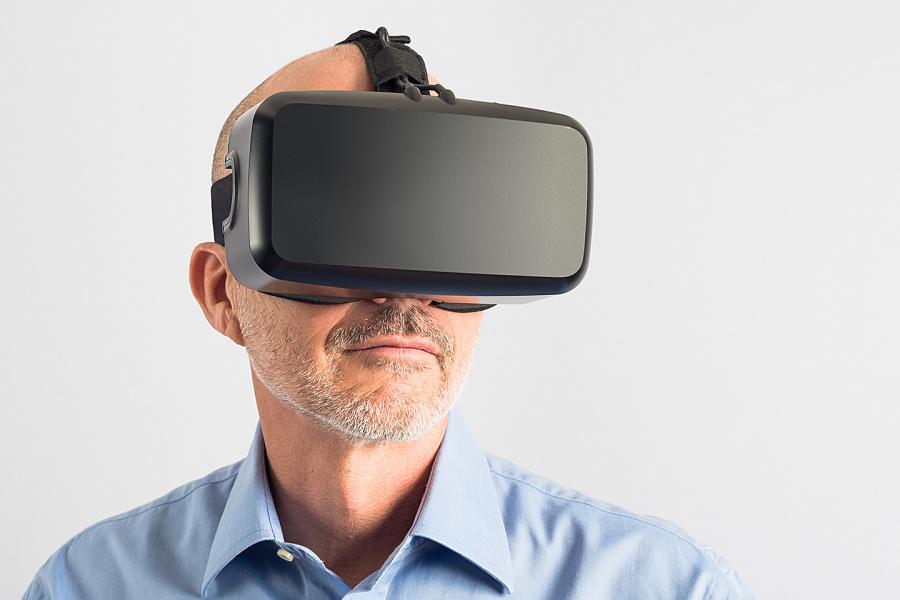Six innovative projects recently proposed by teams of researchers from eight academic divisions vary widely in intent and in scope, but they all have two things in common: They use digital technology to achieve their teaching goals and have been named recipients of 2022 DELTA grants.
The Johns Hopkins initiative called DELTA—an acronym for Digital Education and Learning Technology Acceleration—was launched in 2018 and has now awarded five rounds of grants totaling more than $1.9 million to university teams to encourage the use of new technologies to transform teaching and learning in surprising and meaningful ways. The recipients are chosen by and funded through the Provost's Office.
The six 2022 projects, receiving a total of $406,000 in funding, were selected from 17 submissions. They include telenovelas to teach hospice family caregivers from African American and Puerto Rican backgrounds, virtual reality to improve faculty mentoring skills, and a digital resource for strengthening student writing in all disciplines.
"As exemplified by these outstanding awardees, Johns Hopkins faculty and staff continue to push the boundaries for how technology can be harnessed to improve teaching and learning," says Stephen Gange, the university's executive vice provost for academic affairs. "I'm eager to see their proposals come to fruition in the next year. We are all grateful for the continued support by university leadership over the last five years that enables our DELTA awards and annual symposium."
Details about the 2022 projects and grantees, listed below, are available here.
Developing and Pilot-Testing Culturally Based Educational Videos for Puerto Rican and African American Home Hospice Caregivers
- Dulce Cruz-Oliver, assistant professor, Department of Medicine, School of Medicine
- Danetta Sloan, assistant scientist, Department of Health, Behavior and Society, Bloomberg School of Public Health
- Marcela D. Blinka, research associate, Center on Aging and Health, Division of Geriatric Medicine and Gerontology, School of Medicine
Leveling the Playing Field: Development and Evaluation of an Open Access, Online Course on Gender Equity in Health Data
- Tahilin Sanchez Karver, assistant scientist, Department of Health, Behavior and Society, Bloomberg School of Public Health
- Michelle René Kaufman, associate professor, departments of Health, Behavior and Society and of International Health, Bloomberg School of Public Health
- Deborah Levine, senior program officer, Department of Health, Behavior and Society, Bloomberg School of Public Health
Quantitative Assessment of Live Three-Dimensional Immersive Operating Room Observation via Virtual Reality Technology Compared to In-Person Training for Orthopaedic Surgical Education
- Uma Srikumaran, associate professor, Department of Orthopaedic Surgery, School of Medicine
- David C. Peloff, associate director, Center for Technology in Education, School of Education
- Vinciya Pandian, associate professor, assistant dean of immersive learning and digital innovation, and director of the Center for Digital and Immersive Technologies, School of Nursing
Opening the Doors: Mentoring Across Difference
- Demere Woolway, executive director of Inclusive Excellence Education and Development
- David Toia, multimedia producer, Center for Teaching and Learning, Bloomberg School of Public Health
- Jason Gray, multimedia systems specialist, Peabody Institute
- Andi Overton, director of Recruitment, Carey Business School
- Rebecca A. Cruz, assistant professor, Department of Innovative Teaching and Learning, School of Education
Real-Time and Longitudinal Neurosurgery Resident Feedback Through Artificial Intelligence
- Masaru Ishii, associate professor, Department of Otolaryngology–Head and Neck Surgery, School of Medicine
- Gary Gallia, professor, Department of Neurosurgery, School of Medicine
- Mathias Unberath, assistant professor, Department of Computer Science, Whiting School of Engineering
- Jose "Tito" Porras, fellow, Department of Neurosurgery, School of Medicine
Writing@Hopkins: A Toolkit for Teaching Writing in the Disciplines
- Rebecca Wilbanks, lecturer, University Writing Program, Krieger School of Arts and Sciences
- Matthew Pavesich, teaching professor and director, University Writing Program, Krieger School of Arts and Sciences
Posted in News+Info








